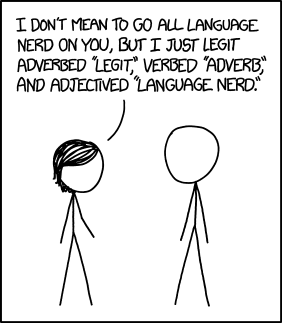Feeling overwhelmed by the number of emails you have to deal with every day? You’re not alone…
Feeling overwhelmed by the number of emails you have to deal with every day? You’re not alone…
Another week nearly over…. The LINGUA FRANCA Sprachschule blog hopes you have a wonderful weekend!
How does the life of your average German compare to that of your average Briton? Have a look at the infographic from the ZEIT ONLINE below. Does anything surprise you? Are there other statistics you would like to see on this list?
As English has established itself as the world’s lingua franca (Verkehrssprache), more and more non-native speakers use English to communicate information to people who do not share their native language.
The results are sometimes interesting – from the plain wrong to the truly weird. Please enjoy the examples below (clicking on some images will take you to more examples) and feel free to add more of your own in the comments below.
 |
|
 |
||
 |
 |
 |
From the always excellent xkcd – „A webcomic of romance, sarcasm, math, and language“ – some language nerding to help you welcome the weekend. If you don’t understand it, ask your English teacher to explain it – they will thank you.

See some examples by illustrator and writer Ella Frances Sanders of words from various languages that just can’t be translated into English (such as the example from Swedish below). German is represented with the word „Warmduscher“. Do you have any favourite examples of untranslatable words? From The Guardian.
Who has the bigger active vocabulary – The Wu-Tang Clan or Shakespeare? You might be surprised. Data scientist Matt Daniels‘ in-depth statistical analysis of hip hop vocabulary (http://experiments.undercurrent.com/) uncovers some interesting results. Great for lovers of language, hip hip and/or statistics.
Something a little lighter before the weekend? The LINGUA FRANCA Sprachschule blog is proud to present a map of all the somewhat rude place names in the UK. And there are a lot. From Two Butt Lane and Bushygap to Idle Dick Wood and Shitlington Hall. An absolute delight. Click the map for (many) more images. Post your favourite in the comments below!
Today the LINGUA FRANCA Sprachschule blog is dealing with an issue that is as big a problem for native speakers as it is for English learners – the difference (and there definitely is one!) between e.g. and i.e.
e.g. is the short form of the Latin phrase „exemplī grātiā“, meaning „for the sake of example“. It is used when you list some examples of what you have just stated. In spoken language, you normally just say „for example“. The German equivalent is z.B.- zum Beispiel
i.e. is the short form for the Latin phrase „id est“, meaning „that is“. It is used when you want to clarify what you have stated by putting it in other words, i.e. rephrasing for the sake of clarity (see what I did there?). When you are speaking, you usually just say „that is“. The German equivalent is d.h. – das heißt
If you want some more details and examples, all in colourful comic form, have a look at:
This family tree for languages, created by Minna Sundberg from the webcomic Stand Still. Stay Silent, shows the relationships between two European language families – the Indo-European and the Uralic.
For more information on language families, take a look here.